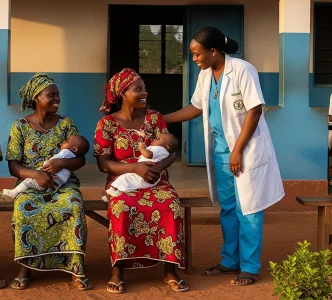A Milestone with Instructions
In late 2024, Nigeria introduced the R21 malaria vaccine into routine immunisation schedules, starting with Kebbi and Bayelsa states. This vaccine, which is recommended by the World Health Organisation (WHO), specifically targets children under five - the demographic most vulnerable to severe illness and death from the disease.The rollout is a phased process. While the arrival of the vaccine is a significant public health milestone, it is essential to note the specifics: the R21 regimen requires four distinct doses to be effective. Gavi reports that initial uptake in the pilot states has been positive. Still, the logistical task of ensuring millions of children complete the full course remains a challenge for health authorities.
Nets Are Still Essential
The introduction of R21 offers a new layer of defence, but it is not a standalone solution. Clinical trials indicate the vaccine can reduce malaria cases by up to 75%, potentially saving thousands of lives. However, it does not replace existing prevention methods.Health data and online search trends show that Nigerian parents are asking valid questions about safety and efficacy. The experts' answer is clear: the vaccine is safe, but it works best when combined with traditional measures. As WHO Africa highlights, the vaccine is designed to work alongside insecticide-treated nets and early diagnosis, not instead of them. Relying solely on the vaccine without maintaining other precautions could leave gaps in protection.
Use Both for Full Safety
For parents and guardians, the path forward is integration. Families in eligible areas are encouraged to have their children vaccinated while continuing to use mosquito nets every night.The success of this programme relies on completing all four doses and maintaining trust in the health system. As the rollout expands to more states, staying informed through official channels will be key. By combining the new vaccine with established habits, Nigeria can move closer to significantly reducing the malaria burden.
Access & Action Plan
For parents in Kebbi and Bayelsa, the vaccine is available now at Primary Healthcare Centres (PHCs). It is free and intended for children aged 5 to 15 months.For families in other states, the immediate action is to use mosquito nets strictly while awaiting the Phase 2 rollout. The success of this programme relies on completing all four doses and maintaining trust in the health system. By combining the new vaccine with established habits, Nigeria can move closer to significantly reducing the malaria burden.



